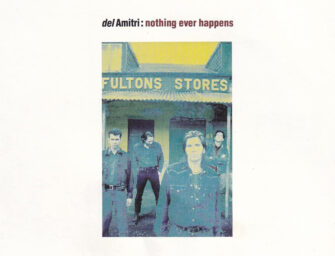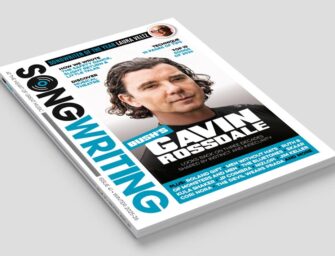How one of the lucky few original songs to appear on ‘The Bodyguard’ soundtrack was inspired by a real break-up
In the late 80s, Whitney Houston rose to international prominence as an exceptional vocal talent and was already on her way to becoming one of the best-selling music artists of all time. But by 1992, the soul diva from New Jersey made her screen acting debut starring alongside Kevin Costner in the romantic thriller, The Bodyguard, and took her career to dizzying new heights. The film’s Original Soundtrack Album won numerous awards, topped charts the world over and broke records – it remains the best-selling soundtrack album of all time, selling over 42 million copies worldwide.
The LP spawned a number of massive hit singles, including the cover of Dolly Parton’s I Will Always Love You, but the fourth single would be the original song, Run To You. Despite only achieving relatively moderate chart success, it became one of Houston’s most recognised songs, and was nominated for a 1993 Academy Award for Best Original Song.
The songwriting duo of Jud Friedman and Allan Rich had previously scored a No 1 with I Don’t Have The Heart for James Ingram, but that didn’t mean the pair were a shoo-in for The Bodyguard soundtrack. As we discover, it was a miracle Run To You got selected at all…

Released: 21 Jun 1993
Artist: Whitney Houston
Label: Arista
Songwriter(s): Jud Friedman, Allan Rich
Producer(s): David Foster
UK chart position: 15
US chart position: 31
Allan Rich: “I had a verse and a chorus, and gave it to Jud, who wrote the most beautiful music and helped me with the lyric. I did write it specifically for Whitney, but it coincided with a 10-year break-up in my life. Jud and I like to move and touch people, that’s the goal for our songs, and I’m an emotional person. So it was a happy coincidence, if you want to call it that, that they were looking for a Whitney song when I was raw – it worked very well.”
J: “Allan put in this lyric idea and then I sat down and started playing stuff, singing and showing him ideas. We actually wrote two pieces of music and then went home; I wasn’t sure if either one of them was any good. Then we came back the next day and thought one of them – the version that ended up sending to Whitney – was like, ‘Holy shit, this is actually really good.’ The lyric happened pretty quickly, probably a day or two, then we recorded a bare-bones version. I played it as we were writing it, and I liked the feel so much that I kept the out-of-time version and layered stuff on top – we did it as piano, vocal and some strings. We felt it had something special so we sent [Clive Davis, president of Houston’s record label Arista] that and he called us saying, ‘We all love the song, but can you make it sound more like a Whitney Houston record?’ We guessed he meant more production, so we went back in the studio and got a drummer friend of ours to come in to make it work, but it took us four hours to do this three-minute song because it was out of time! We added some production to it, they loved it and it was in the movie. But that’s not the end of the story…”
A: “It was supposed to be a break-up song. But they cut some scenes out of the movie and the director, Mick Jackson, called us up and said, ‘We love your song, but just one little thing: we’re changing the break-up to a take-a-chance-on-me scene. It wouldn’t be too much to rewrite the whole lyric, right?’ We go, ‘No problem,’ then put the phone down and collapse! Then the phone rings and it’s Clive, and he says, ‘I’ve heard what’s going on. You might as well take a chance and try to rewrite the song, but we love it so much as it is, so if they don’t use it in the movie we’ll put it on Whitney’s greatest hits record that’s coming out in a year.’ We get off the phone and we were like, ‘No way, we’re not missing this opportunity.’ That greatest hits album actually came out nine years later! So we went back into the studio and rewrote the whole song. We had to keep Run To You, but originally, the chorus was: ‘I wanna run to you, just like I always did before, come back through the door / I wanna run to you, how I want to come to you, but you’re not there to run to anymore.’ And we changed it to ‘will you stay or will you run away’, which is saying, ‘I’m into you, are you into me?’ basically. It worked and, miracle of miracles, the song ended up on the record.”

































Related Articles